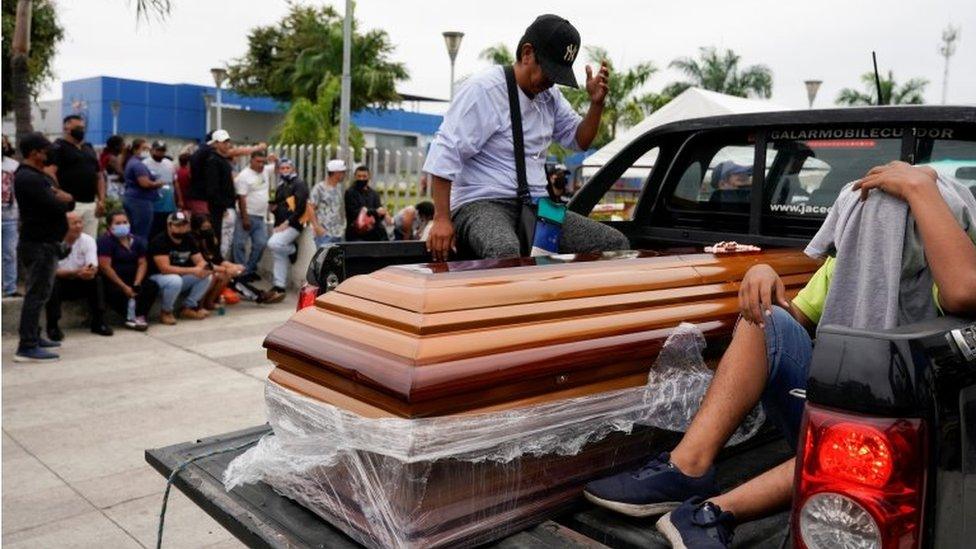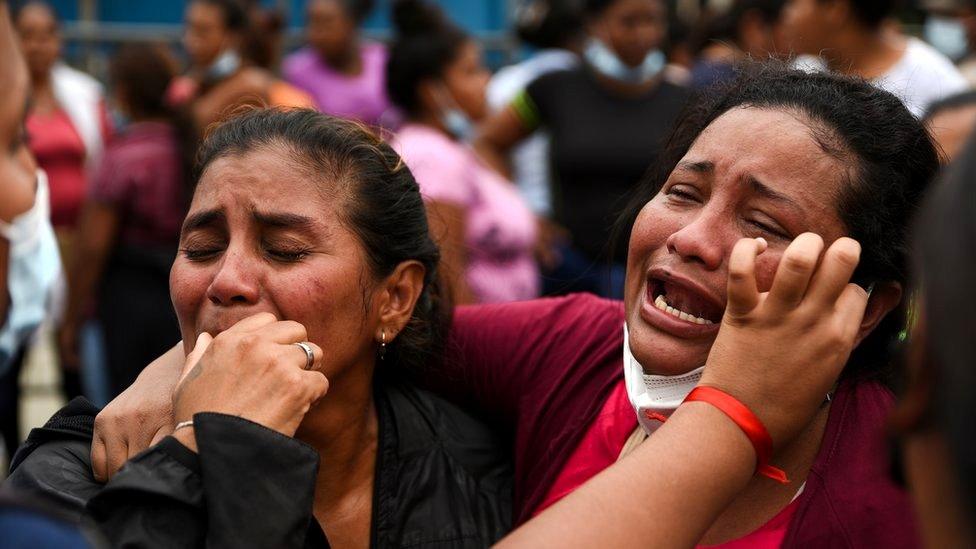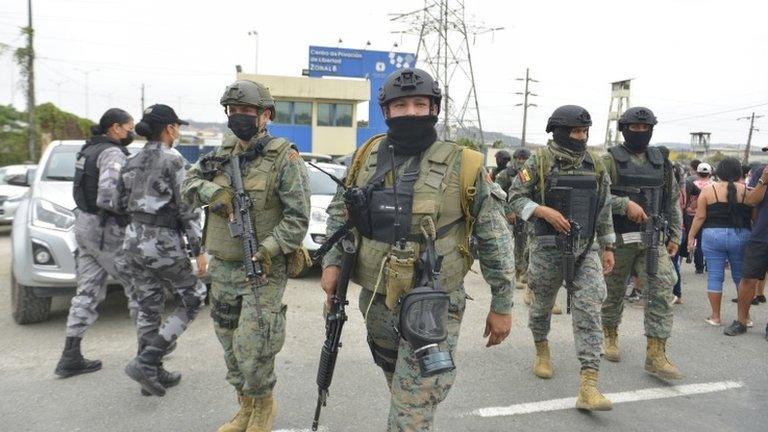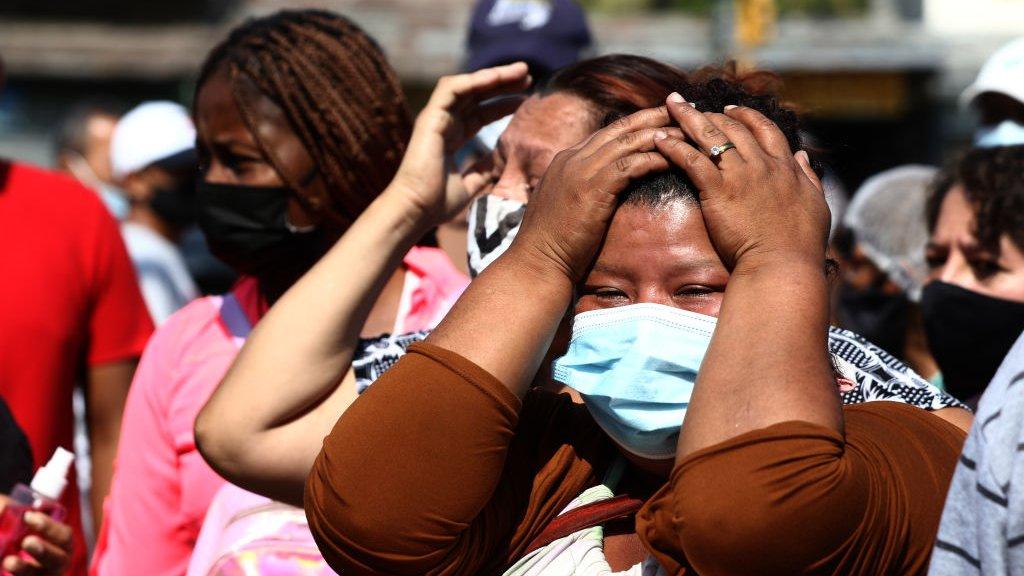Ecuador prison and armed forces chiefs resign after riots
- Published

Empty coffins were being delivered to the morgue where most of the bodies have been taken
The head of Ecuador's prison system and the country's armed forces chief have resigned following a fresh gang fight which left 68 inmates dead in a jail in the city of Guayaquil.
The deadly fight happened at the same prison where 119 inmates were killed in September, also in gang warfare.
It took 900 police officers to restore order after the latest incident.
The spike in prison violence has cast a shadow over the first six months in office of President Guillermo Lasso.
In a BBC interview earlier this month, President Lasso said that prison guards needed to be armed in order to be able to confront highly organised gang members.
"There is no way that prison guards who only carry batons can confront mafias which have drones and explosives," he said.
The most recent incident happened during a 60-day state of emergency the president had declared inside the prison system.
The state of emergency means that extra funds can be allocated to fight violence inside the jails and also allows the military to assist guards and police in securing the prisons.
Despite the extra measures in place, another deadly fight broke out in the Litoral Penitentiary on Friday night.
Analysts have blamed the spike in prison homicides on the infiltration of Ecuadorean gangs by powerful transnational crime cartels.
They say that the acts of extreme violence - such as decapitations and the use of explosives - seen at Litoral Penitentiary were inspired by the tactics used by Mexican criminal organisations such as the Sinaloa and Jalisco New Generation cartels.
The local governor said that the most recent fight was triggered by the release of a gang leader which prompted members of a rival gang to try to seize control of one of the prison wings.
"As this section of the prison was without a ringleader after he had been freed by a judge, other gangs tried to surround the wing to carry out a total massacre," Governor Pablo Arose Mena said.
According to police, the inmates were armed with guns and explosives.
Footage shared on social media appeared to show inmates kicking and burning bodies.
Some of the relatives of those killed said that while the fight may have been triggered by gang rivalry, many of the victims were serving sentences for minor crimes and were not hardened criminals.
- Published14 November 2021

- Published23 October 2021

- Published19 October 2021

- Published1 October 2021
